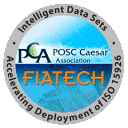TracNav menu
-
IDS-ADI Projects:
- ISO 15926 Primer
- ISO15926 Standard Structure
- IDS-ADI Coordination Structure
- IDS-ADI Infrastructure
- The AVALON Project
- Core Modelers Projects
- Core Implementers Projects
- Core Compliance Project
- Core Methodology Project
- IDS-ADI Matrix Master (login)
- IDS-ADI Matrix 1,2,3 activity
- IDS-ADI Matrix 4 activity
- IDS-ADI Matrix 8 activity
- IDS-ADI Part3 Harmonization
- IDS-ADI BIDG (aka Handover Guide)
- IDS-ADI Proteus Project

POSC-Caesar FIATECH IDS-ADI Projects
Intelligent Data Sets -- Accelerating Deployment of ISO15926
Realizing Open Information Interoperability
The IDS-ADI Modellers' team
The IDS-ADI Modelling, Methods & Content team ("Modelers" for short) is focussing on defining all modeling and methodology aspects of Part 7 independent of implementation. Part 7 supports all levels of modeling from from business "short cuts" to explicit Part 2, with methods for mappings between these, in sufficient rigor and formality to enable implementation and reliable lifecycle management in Part 4 reference data. For implementation & technology aspects which will be covered by Parts 8 and 9 refer to the Implementors home page.
For arrangements to manage this beyond the life and scope of the IDS-ADI projects, refer to Part 5 on reference data rules, Part 6 on reference data administration, and the MMT SIG homepage currently at the POSC Caesar main website.
Projects, tasks and deliverables under the Modellers include
- Part 7 Templates - modelling requirements and methodologies from the business and lifecycle information management perspective (See below). (For template technologies and implementations, see Implementors.)
- Compliance Specification - See Compliance Page
- BIDG (Business Interfaces Definition Guide) - See BIDG Page
- Other modelling, reference data content and mapping tasks - eg current harmonization of Part 3 (Geometry) with Parts 2 (Core Model) & 4 (Reference Data) in terms of Part 7 (Templates)
Part 7 Templates & Methodologies
Part 7 Templates are "Usage Patterns" for implementation of the underlying Part 2/3/4 data model. They are the implementation modeling and methodology for ISO15926. As such they underly all implementations of 15926, from the simplest individual WIP entry to the most complex business exchange data set. The word Template is therefore overloaded with different meanings for different types of template from the simplest building blocks to complex assemblies, and from class level templates to instances.
Template Types - For a definition of what templates are and what different types of template there are refer to the template types page.
Starting Set - All specific template definitions, agreed for sharing and re-use, are part of reference data, to be captured in the WIP. For definitions of the starting set of templates refer to the template definitions page. (Note that this starting set includes the minimum sub-set necessary for instantiation of WIP content.)
As well as definining the template model and the template types, Part 7 concerns the mapping methodologies by which real business data sets are characterised in terms of the Part 7 model. For the definition of the Part 7 Methodology refer to the template methodology page.
LATEST STATUS
There are several Template Modelling Discussion Topic pages
- What is a Template - This page (below).
- Template Defintions
- Template Implementation Modelling
